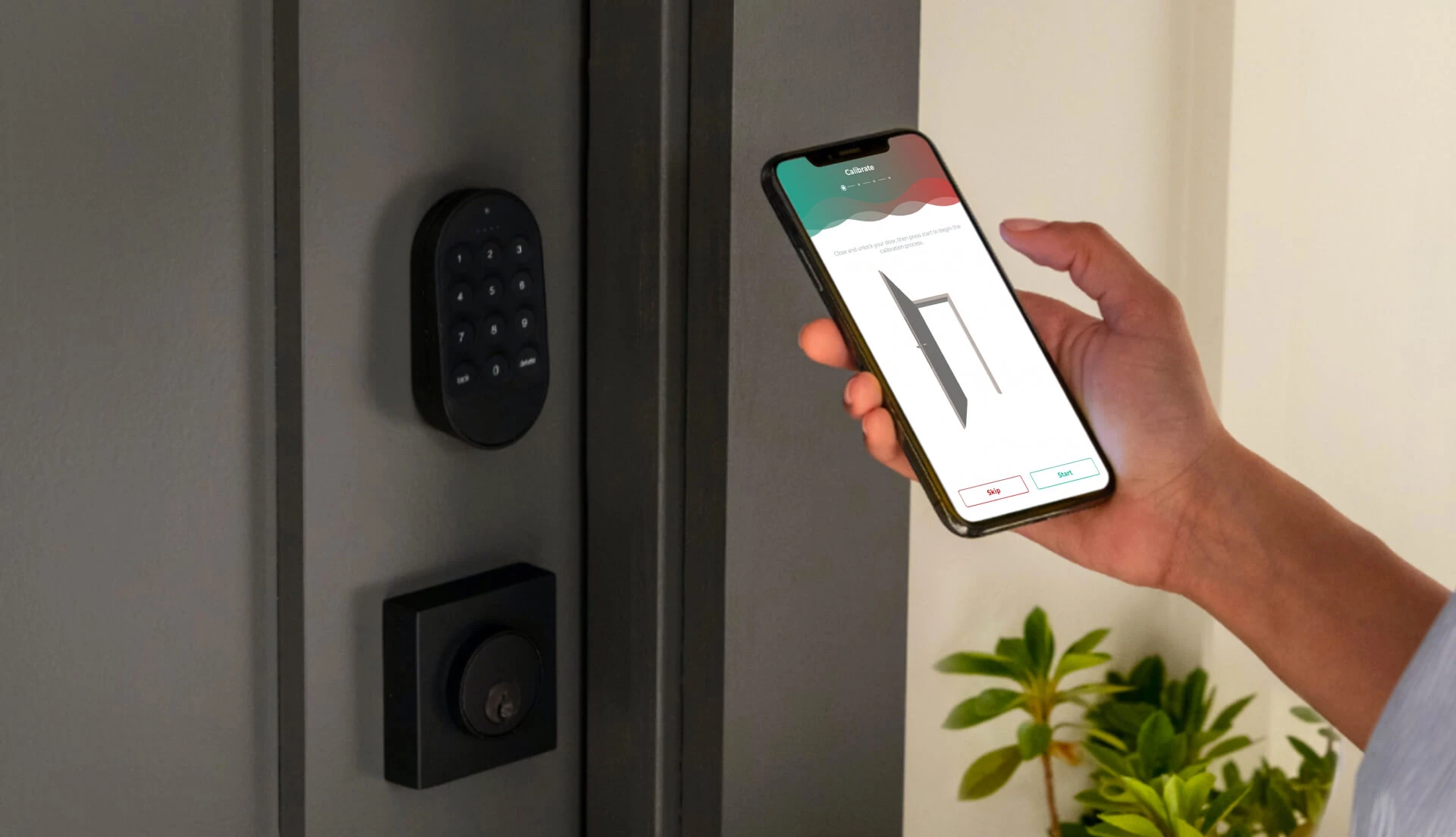
Industry pioneers are swiftly acknowledging the numerous benefits that the Internet of Things (IoT) brings to businesses across all sectors. As indicated by Business Insider's forecasts, the quantity of IoT devices employed in various industries is estimated to reach a staggering 55 billion by 2025.
IoT empowers organizations to replace outdated manual asset tracking systems by implementing automated sensors. These sensors seamlessly connect to the internet and integrate with centralized systems, enabling real-time monitoring of valuable company assets.
Furthermore, IoT holds immense potential in elevating customer satisfaction to new heights by offering advanced functionalities and personalized experiences.
Benefits of IoT
The concept of IoT encompasses two key features that define its essence:
- Automation: IoT revolves around the idea of direct communication between various devices and hardware components without the need for human intervention. It enables seamless connectivity and interaction between these entities.
- Connectivity: IoT enables enhanced connectivity within a global network, allowing easy access to vast amounts of information and resources.
For instance, Artificial Intelligence, Big Data, and Machine Learning are crucial for enabling automation, while cloud computing and wireless communication technologies greatly enhance connectivity.
Now, let's explore the numerous advantages of IoT technologies and services, primarily focusing on their benefits for businesses. It's important to note that while this review emphasizes the business perspective, IoT also has applications for individuals and households. Additionally, these advantages are interconnected, often leading to a chain reaction of positive effects.
1. Optimal Asset Utilization
By integrating IoT into their business models, organizations can efficiently track and monitor their assets. This includes utilizing sensors in transportation vehicles and remote locations to stay updated on changing events. With IoT, companies can proactively monitor the health of their equipment, ensuring optimal functioning at all times.
2. Insightful Data from Sensors
IoT enables companies to gather valuable insights from every corner of their business. In time-sensitive or critical situations, data becomes invaluable. For instance, the benefits of IoT in Healthcare. IoT devices present numerous opportunities for healthcare professionals to monitor patients effectively, while also empowering patients to monitor their own health. These devices enable seamless data collection, remote monitoring, and real-time communication, revolutionizing healthcare practices. Also, organizations can install remote sensors in sensitive sites like oil wells, connecting them directly to headquarters via cellular networks. This allows for remote monitoring, control of equipment, real-time data collection, and the ability to develop predictive models for future forecasts.
3. Enhanced Customer Service
IoT empowers organizations to streamline their processes, reducing turnaround times and resource requirements for asset management. A notable example is Amazon, which has leveraged IoT to enhance customer satisfaction. This includes using artificially intelligent robots to automate the sorting and placement of items, as well as employing remotely controlled drones for local product shipments.
While IoT technology has primarily impacted back-end processes due to its relatively recent emergence, it has now completely transformed the way consumers interact with businesses, leading to a shift in front-end customer engagement strategies.
Want a web app that does more?
Let's build a solution that's smart, sleek, and powerful.
Alina
Client Manager

Organizations now prioritize engaging better with their audiences through IoT devices. Modern customers expect to interact with businesses through their smartphones, whether it's via automated chatbots, reliable mobile websites, or dedicated apps. Surprisingly, 40% of customers don't mind whether they receive assistance from a chatbot or a human, as long as their needs are met.
Forward-thinking businesses leverage new technology and combine it with IoT to provide enhanced customer service. Unifying internet-connected devices and offering a seamless experience across different IoT devices has become a significant selling point for modern businesses. This drives many organizations to invest in custom apps that cater to their audience on any device or endpoint. The rise of solutions like low-code development environments has empowered IT leaders, with 90% stating that the flexibility and speed of these platforms have improved customer experience.
By utilizing IoT devices commonly found in customers' pockets or backpacks, businesses ensure they are easily accessible at all times. Recognizing the importance of extending key business processes to everyday IoT devices becomes crucial for maintaining future competitiveness.
Notably, customers' perception of IoT has also shifted, with 30% of consumers feeling completely comfortable with companies using IoT devices.
4. Enhanced Mobility and Agility
The advent of IoT technology has empowered businesses to embrace increased mobility and flexibility, offering notable advantages, especially for small and mid-sized businesses (SMBs). With the ability to work from anywhere, employees can conduct their tasks from various locations, reducing the reliance on costly office leases. This has led to a surge in SMBs adopting "work from anywhere" positions and hiring more full-time remote employees.
Implementing IoT policies in organizations has improved business agility, with approximately 43% of businesses experiencing enhanced operational processes. This agility has become even more crucial since the pandemic, as organizations had to establish remote work policies to meet new demands. Remote workers have become an integral part of modern workforces, and this trend is expected to continue.
To fully benefit from IoT technology across all devices for communication purposes, it is essential to prioritize solid strategies for securing these endpoints. Security considerations are paramount, particularly when implementing IoT outside of traditional office environments. Many businesses, about 42%, cite difficulties in managing security as a key challenge in IoT implementation. It is important to address security concerns comprehensively, considering the protection of devices used by remote workers and other IoT devices like edge devices.
While 29% of companies may perceive the risk of adopting IoT as outweighing the benefits, with a robust cybersecurity policy in place, the Internet of Things can be safely and effectively integrated into business operations. For organizations implementing a remote-first policy, ensuring the security of IoT devices used by employees becomes crucial to safeguard the business network and its data from potential cyberattacks.
As the benefits of increased mobility through IoT become evident, both in remote work and on-site tasks with IoT devices, it is vital to recognize the potential vulnerabilities and expand attack surfaces. Thus, a comprehensive security plan and policy for IoT device usage within organizations are essential in today's landscape.
5. Cost-Effectiveness
The automotive industry stands to benefit greatly from IoT advancements. The benefits of IoT in manufacturing include designing self-driving cars that communicate with internal devices. This connectivity not only reduces labor costs but also enhances fuel efficiency, making it particularly promising for transport services like Uber.
The implementation of the Internet of Things (IoT) brings about significant cost reduction, it is the main IoT benefit, particularly in specific industries such as manufacturing.
For instance, according to a study by Deloitte, predictive maintenance (PdM) can lead to a 20% to 50% reduction in the time needed to plan maintenance, while also increasing equipment uptime and availability by 10% to 20%. Overall, maintenance costs can be reduced by 5% to 10% through PdM implementation.
This cost-saving potential is particularly beneficial for manufacturers. However, the benefits of IoT adoption extend to a wide range of small and medium-sized businesses (SMBs) across various industries.
One notable area where cost reduction occurs is in labor costs through improved process efficiencies. A remarkable 83% of organizations that have embraced IoT technology have witnessed enhanced efficiency, resulting in reduced expenses and improved output from employees.
Furthermore, McKinsey highlights that activity monitoring, facilitated by IoT, can boost productivity by 10% to 12%. This means businesses get more value from their investments, ultimately achieving a greater return on investment.
6. Enhanced Business Opportunities
Utilizing IoT solutions enables companies to expand their range of services or products, or elevate their quality compared to competitors, all while maintaining competitive pricing. Alternatively, businesses can take on more complex tasks in terms of production difficulty, time, or quantity. In essence, the adoption of smart solutions makes an enterprise more competitive and appealing as a potential business partner.
For instance, the implementation of IoT sensors in automobiles enables insurers to optimize rates on automobile insurance by tracking speed and driving habits. Retailers can leverage IoT to measure in-store foot traffic, allowing them to optimize displays for maximum impact based on customer habits.
The widespread impact of IoT on business systems is so significant that a considerable 36% of companies are contemplating new directions in their business strategies as a result of their IoT initiatives.
7. The Trustworthy Image of the Company
Companies that embrace high-tech solutions, including IoT, create a positive impression among customers, investors, and business partners who recognize the numerous advantages offered by the Internet of Things. Furthermore, attracting experienced and sought-after professionals becomes easier when a company provides a safe and secure working environment, facilitated by a network of smart devices.
Our Experience
Remote Control Device for Street Warning Sirens
A project initiated by the Regional Military Administration in Ukraine resulted in the development of a device aimed at effectively controlling street sirens in remote locations.
Leveraging the GSM alarm controller manufactured by the Ukrainian company OKO as a foundation, the team successfully created a device that addressed the critical need for remote control of street sirens during the Russo-Ukrainian War.
An app for working with a smart lock
Our team was tasked with developing software to interface with a smart lock, enabling seamless interaction and control. The software needed to provide the capability to remotely open and close the home lock using commands sent from a smartphone.
Additionally, it was designed to generate and manage virtual reality passwords, allowing authorized access and revoking permissions when required. Furthermore, the software incorporated advanced features such as automatic door opening, utilizing owner recognition, and enabled control not only within the line of sight but also over the Internet.
Conclusion
By leveraging advanced IoT analytics, businesses can unlock a range of benefits including enhanced efficiency, increased productivity, and cost reduction. The implementation of IoT technology not only drives innovation but also redefines traditional business operation models, opening up new opportunities for growth and success. Prioritizing customer experience is crucial for boosting revenue, and IoT offers valuable insights into tracking customer behaviors, enabling businesses to make impactful decisions. To ensure optimal security and uninterrupted service, businesses must take measures to safeguard the data flowing to and from IoT devices, mitigating potential risks and maintaining the trust of their customers. If you are interested in creating an IoT-based solution, contact us, a free consultation is available.

 Read the full case study
Read the full case study
 Read the full case study
Read the full case study


